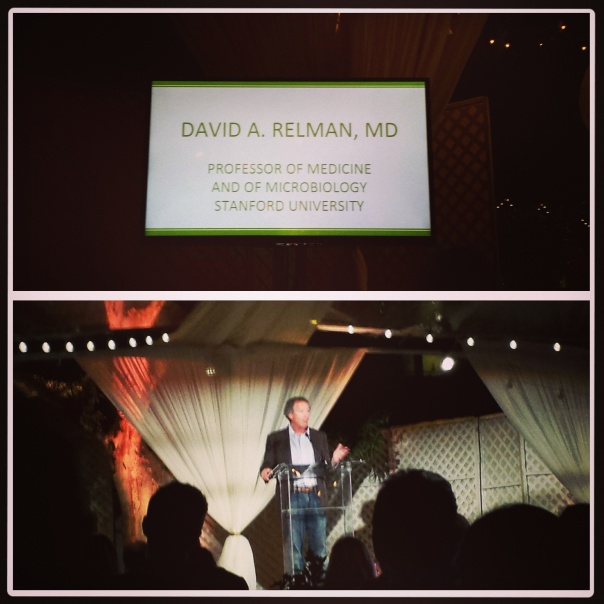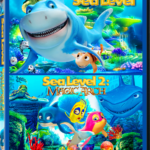For those that follow my blog, you’ll remember that I attended a dinner hosted by Natural Resources Defense Council (NRDC) a couple of weeks ago. You can read all about the wonderful reception & the great musical guest Aloe Blacc here.
The reason why we were gathered in Santa Monica for the dinner was to celebrate safe & sustainable eating. During the evening, we also learned how the widespread use of antibiotics in our livestock & poultry farms affects the meat & chicken that we consume.
Foster Farms is the leading chicken supplier in the United States. While I try to buy organic chicken as much as possible, one tends to forget that school lunches, restaurants & cafes all probably buy their chicken from Foster Farms. Personally I found the infographic below very shocking.
The information highlighted in this graphic was addressed during the dinner by Dr. David Relman. He described the human health risks involved that are created by the overuse of antibiotics in farm animals.

Did you know that recently: The Centers for Disease Control and Prevention (CDC) released an alarming updated count of illnesses from a persistent antibiotic resistant Salmonella outbreak plaguing the nation, particularly California (77% of the cases). Since the last update a few weeks ago, 50 new cases have emerged in this ongoing outbreak, now totaling 574 human illnesses and counting. This widespread Salmonella outbreak, starting last spring, is linked to California-based poultry producer giant Foster Farms – the nation’s sixth largest poultry producer and the largest in California. According to the Centers for Disease Control and Prevention (CDC), nearly two-thirds of the Salmonella sampled from afflicted patients tested resistant to one or more antibiotics.
Statements from Foster Farms suggest that the company relies on antibiotics to keep its chickens alive — a practice that is known to breed antibiotic resistant bacteria. The World Health Organization recently warned that livestock use of antibiotics is contributing to growing antibiotic resistance.
While Dr. Relman discussed these issues during the dinner, I couldn’t help but think of that Matt Damon & Gwyneth Paltrow movie Contagion. While the movie may be a little extreme & far-fetched, if industry practices don’t change, we may not be too far off from the way things were portrayed in that movie.
If you would like to learn more about the poultry industry as it relates to antibiotic resistance, click on this link to read an article highlighting the issue.
For those active in social media, feel free to Tweet the following:

I know there has been some discussion online & among certain entertainment folks (yes Shonda Rhimes, I am name-checking you) about the effective use of social media as it relates to social good. Personally I think that if a hashtag (#) can create a dialogue amongst friends & the community at large, then it is all good. Creating awareness & contributing in a way that you are able to is wonderful (in my opinion). So whether it is through raising awareness online, volunteering or donating money to the cause, I encourage you to learn more about NRDC’s efforts by checking out their website here.
Disclosure: I was invited to attend the NRDC “Thought for Food” dinner along with several other media folks. I did not receive monetary compensation for this post. All images/photos are mine unless otherwise stated. My thoughts & opinions are 100% mine.








Now I want to watch Contagion! lol. Social media is definitely a great way to spread the word about social good. It’s so influential! That dinner looked really awesome, I’m so glad you were able to go! Thanks for sharing 🙂
Go watch the movie! The story line is pretty good, acting is great & the pace is good (not a dull moment for me). Glad you agree with my belief that social media can help spread social good. 🙂 Appreciate you stopping by my blog!
I went to watch it the other night but it’s not on netflix! Haha. It looks super good though. And yes social media is totally the best for spreading awareness and really anything! I think it’s hard for some people to adjust to it, but it’s great! 🙂
I have seen the research, which is why I became a vegetarian in the late 90s. Foster Farms and their ilk have only gotten worse. My kids are omnivores, yet they know they are not to eat any meat unless they know its name. We are poisoning our food, which means we are poisoning ourselves.
It is frightening the stats that you read. I’m trying to “lean in” to the idea of being a vegetarian, but I don’t think I can make the leap. For now, I’ll try to eat as clean as possible, with room for a sweet indulgence here or there. 🙂